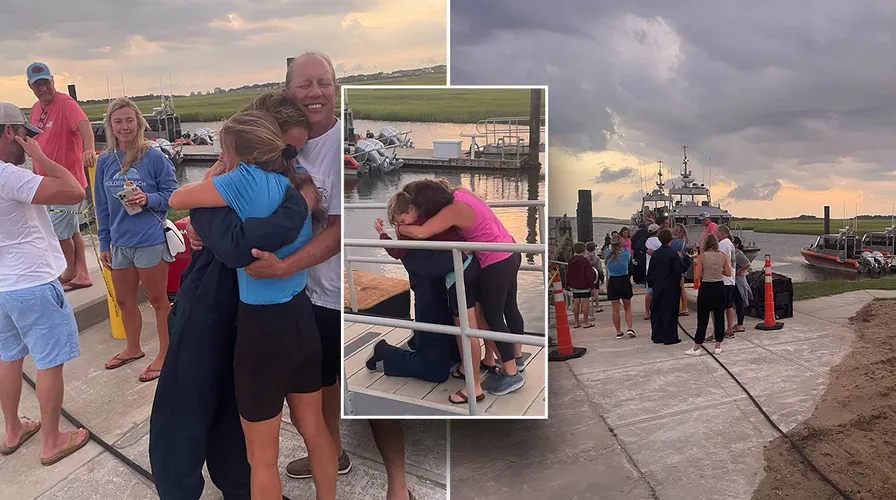Introduction to Coast Guard Missions
Every year, countless divers explore the depths of our oceans and lakes, seeking adventure and tranquility beneath the waves. However, with the beauty of underwater exploration comes inherent risks. When a diver goes missing, time is of the essence. The Coast Guard stands ready to respond—a dedicated team that combines skill, technology, and courage in their search for those lost at sea. Understanding how they operate can provide critical insights into this life-saving mission and highlight what we can all do when faced with such dire circumstances. Let’s dive deeper into the world of Coast Guard missions focused on finding missing divers and discover how each second counts in these challenging situations.
Understanding the Role of the Coast Guard in Search and Rescue Operations
The Coast Guard plays a vital role in search and rescue operations, acting as the first line of defense when emergencies arise at sea. Their mission is not just about patrolling waters; it’s about ensuring safety for everyone who ventures into the ocean.
When divers go missing, time is of the essence. The Coast Guard mobilizes quickly to deploy specialized teams equipped with advanced tools and technology. These professionals undergo rigorous training to handle various scenarios, making them adept at navigating challenging conditions.
Coordination is key during these missions. The Coast Guard collaborates with local agencies, volunteers, and even private organizations to maximize their efforts. This teamwork enhances their ability to locate missing divers swiftly and effectively.
Their passion for saving lives drives every operation they undertake, underscoring the importance of preparedness and swift action in critical situations on our waterways.
The Importance of Finding Missing Divers Quickly
Time is critical when it comes to locating missing divers. The ocean can be unpredictable, and conditions can change rapidly. Every minute counts in a search operation.
The longer someone remains unaccounted for underwater, the greater the risk of hypothermia and exhaustion. Divers often rely on limited air supplies, making swift action essential.
Moreover, rapid response increases the likelihood of survival. Each moment lost diminishes chances of recovery or safe return.
Quick coordination among rescue teams enhances efficiency during these missions. Local knowledge combined with advanced technology improves search outcomes significantly.
Public awareness also plays a crucial role in safety measures while diving. Educating divers about potential risks fosters preparedness and encourages them to dive within their limits.
Each case serves as a reminder that vigilance is vital not just for seasoned professionals but for recreational divers too.
Steps for Reporting a Missing Diver
When you suspect a diver is missing, swift action is essential. Start by gathering crucial information; know where the diver was last seen and their intended dive plan.
Next, contact local authorities immediately. The Coast Guard should be alerted as they have specialized teams for search and rescue operations.
Provide accurate details about the missing diver’s experience level, equipment used, and any personal identifiers. This information can significantly aid in the search efforts.
Stay at the location if possible; this helps responders understand conditions firsthand. Encourage others to remain calm while waiting for help to arrive.
Always remember that time is critical in these situations. Acting quickly can make all the difference when it comes to locating a coast guard missing diver safely.
Utilizing Technology and Resources in the Search
Technology plays a vital role in locating coast guard missing divers. Advanced sonar systems can penetrate murky waters, offering real-time data on underwater conditions. This helps teams identify potential locations where divers might be found.
Drones equipped with high-resolution cameras also aid in surface searches. They can cover vast areas quickly, providing aerial views that are hard to achieve otherwise.
Additionally, communication devices like GPS and emergency beacons enhance coordination among search teams. These tools ensure that every moment counts during critical rescue operations.
Resources such as specialized dive gear and remotely operated vehicles (ROVs) increase the capabilities of rescuers under challenging circumstances. Their ability to reach depths unsafe for human divers makes them invaluable assets in recovery missions.
Collaboration with local agencies further enhances effectiveness, combining knowledge and manpower to expedite the search process significantly. Each innovation brings hope for bringing missing divers home safely.
Challenges and Risks Faced by Coast Guard Divers during Rescue Missions
Coast Guard divers face numerous challenges during rescue missions. They operate in unpredictable environments, where visibility can vanish in seconds. Murky waters and strong currents add to the complexity of their tasks.
Physical strain is another significant concern. Divers work under immense pressure, both from water depth and time constraints. Each second counts when a life hangs in the balance.
Moreover, they confront potential hazards such as entanglement or underwater obstructions that could jeopardize safety. Every dive demands heightened awareness and quick decision-making skills.
Mental resilience plays a critical role too. The emotional toll of witnessing distressing situations can weigh heavily on these brave individuals. Maintaining focus amid chaos is essential for effective rescues.
Every mission carries inherent risks that require careful preparation and teamwork to overcome obstacles safely. The courage displayed by Coast Guard divers reflects their commitment to saving lives against all odds.
Tips for Surviving as a Missing Diver
Staying calm is crucial if you find yourself missing underwater. Panic can cloud your judgment and waste precious energy.
First, try to maintain buoyancy by using any available floatation device or your wetsuit. If you’re sinking, kick gently to stay afloat.
Next, look for shelter. Caves or rock formations can provide a reprieve from currents while helping you conserve strength.
Signal for help by creating noise bubbles or tapping on nearby surfaces if you hear other divers close by. Light signals are also helpful if it’s dark.
If food becomes necessary, consume small amounts of seaweed or edible marine life that won’t upset your stomach.
Keep track of time so when rescue arrives, you’ll be able to share how long you’ve been gone and where you last saw fellow divers. This information is invaluable for search teams working tirelessly to locate coast guard missing divers like yourself.
Conclusion
The search for coast guard missing divers is a complex and critical operation. Understanding the nuances of these missions can help improve responses and outcomes.
The Coast Guard plays an essential role in ensuring the safety of individuals who venture into our waters, offering expertise, resources, and support during rescue operations. Their quick response is vital as time is often limited when someone goes missing underwater.
Reporting a diver’s absence promptly not only increases their chances of survival but also aids rescuers in formulating effective strategies. Utilizing technology such as sonar equipment, drones, and GPS tracking enhances the capabilities of search teams significantly.
However, conducting these searches comes with its own set of challenges. The unpredictable nature of water conditions can put both divers and rescue personnel at risk. That’s why training for all involved is crucial to ensure safety while maximizing efficiency.
For those who find themselves lost while diving, knowledge about survival techniques can be lifesaving. Maintaining buoyancy, conserving energy, and signaling for help are just a few tips that could make all the difference.
Understanding how to navigate incidents involving coast guard missing divers may save lives today or in future scenarios. Awareness combined with preparedness creates safer environments—both for those exploring aquatic depths and the brave individuals tasked with bringing them home safely.





